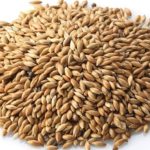CNS Canada — Supply and demand estimates from the U.S. Department of Agriculture held few surprises and had only limited effects on Chicago Board of Trade corn and soybeans — both rangebound in the short term, according to one U.S.-based analyst. “That report was pretty non-eventful right now,” said Scott Capinegro of Barrington Commodity Brokers.

CBOT weekly outlook: Soy, corn hold in trading range

Durum at a standstill despite fresh numbers from StatsCan
CNS Canada — Even fresh domestic production numbers aren’t able to move Canada’s durum prices, one analyst says, as the market stays stagnant on lacklustre processing demand from North Africa and Europe. “I think the trade was anticipating this number for a long time,” said Jerry Klassen, manager of the Canadian office for Swiss-based GAP

Hay producers see increased competition, lower prices
CNS Canada — Canada’s export hay prices have come down from summer highs and now sit at less than half their previous levels, but despite competition from other growing regions, a weak loonie is helping Canadian producers. South Africa, Eastern Europe and Argentina have increased their alfalfa production, said Edward J. Shaw, director of market

CBOT weekly outlook: Corn has upside potential, soy rangebound
CNS Canada –– Corn and soybean futures at the Chicago Board of Trade are moving based on demand, which indicates corn will move higher while soybeans stay steady, according to a U.S.-based analyst. Traders are looking to the next U.S. Department of Agriculture (USDA) supply and demand report, due out Wednesday (Dec. 9), according to

Lethbridge feed wheat stays steady, barley moves downward
CNS Canada –– Feed barley prices have come down while wheat holds steady in Lethbridge, Alta., the centre of Western Canada’s livestock feeding sector. The price of feed barley at Lethbridge fell about $10 a tonne throughout November to sit at about $210-$212 per tonne — for three main reasons, according to Jim Beusekom of

Red tape seen costing hemp growers market share
CNS Canada — Canadian hemp producers are missing out on a potential billion-dollar market opportunity due to government regulations, an industry group warns. Canadian hemp farmers are only permitted to use certain parts, the stalk and seeds, of the plants they grow. As a result, the growers are missing out in the market, said Kim

Slimmer harvest yields faster deliveries from railways
CNS Canada –– A year ago, Western Canada’s shortline railways were struggling to meet commitments, but this year’s smaller grain production has reduced the stress on rail transporters. “There’s no shortage of cars, and there’s no problems in shipping,” said Sheldon Affleck, president of Regina-based shortline Big Sky Rail. A year ago, rail companies struggled

Stronger demand for minor feeds reflected in oats futures
CNS Canada — Oats futures at the Chicago Board of Trade have been creeping higher, which a U.S.-based analyst attributes to increasing demand for minor feed grains. Data from Canada and the U.S. project oat yields to increase from last year, which are capping gains, but at the same time, the demand picture has improved.

Green, yellow pea markets stop moving in tandem short-term
CNS Canada –– Canada’s green and yellow pea markets typically move together, as each market pulls the other up or down, but they seem to have broken out of that cycle, a Victoria-based trader says. Green peas prices have edged lower on a lack of demand, while yellow peas have gained ground. The last time

Canaryseed prices soft, trending weaker
CNS Canada –– Canada’s canaryseed market is slow and stagnant, according to a Saskatchewan-based industry expert, and he expects prices to move lower before improving. Delivered elevator canaryseed is bringing producers 26.5 to 29 cents/lb., according to Prairie Ag Hotwire. “We might see 25 cents/lb. before we see 30 cents/lb.,” said David Nobbs, chair of

